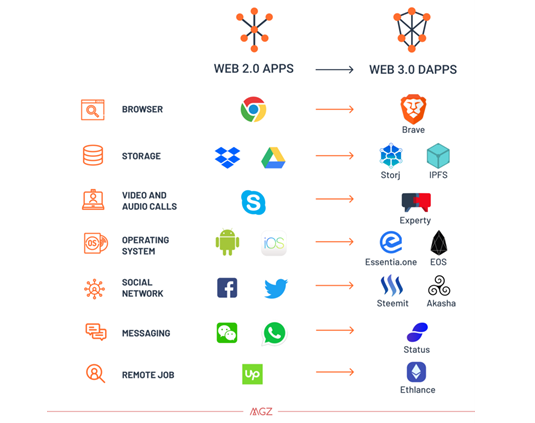Is "Web 2.0" just another buzzword?
Out of all the Internet buzzwords and jargon that have made the transition to the public consciousness, "Web 2.0" might be the best known. Even though a lot of people have heard about it, not many have any idea what Web 2.0 means. Some people claim that the term itself is nothing more than a marketing ploy designed to convince venture capitalists to invest millions of dollars into Web sites. There wasn't even any agreement about if there was a Web 1.0.

Tim Berners-Lee, the inventor of the World Wide Web, dismissed the Web 2.0 concept. He called Web 2.0 "a piece of jargon" and said "nobody even knows what it means" in an IBM developerWorks interview. Berners-Lee said the World Wide Web was always a way for people to connect with one another and that there was nothing new or revolutionary about the Web 2.0 philosophy
Other people insist that Web 2.0 is a reality. In brief, the characteristics of Web 2.0 include:
- The ability for visitors to make changes to Web pages: Amazon allows visitors to post product reviews. Using an online form, a visitor can add information to Amazon's pages that future visitors will be able to read.
- Using Web pages to link people to other users: Social networking sites like Facebook and Twitter are popular in part because they make it easy for users to find each other and keep in touch.
- Fast and efficient ways to share content: YouTube is the perfect example. A YouTube member can create a video and upload it to the site for others to watch in less than an hour.
- New ways to get information: Today, Internet surfers can subscribe to a Web page's Really Simple Syndication (RSS) feeds and receive notifications of that Web page's updates as long as they maintain an Internet connection.
- Expanding access to the Internet beyond the computer: Many people access the Internet through devices like cell phones or video game consoles; before long, some experts expect that consumers will access the Internet through television sets and other devices.
Think of Web 1.0 as a library. You can use it as a source of information, but you can't contribute to or change the information in any way. Web 2.0 is more like a big group of friends and acquaintances. You can still use it to receive information, but you also contribute to the conversation and make it a richer experience. Examples of Web 2.0 applications are Youtube, Wiki, Flickr, Facebook, and so on.
What about Web 3.0?
Internet experts think Web 3.0 is going to be like having a personal assistant who knows practically everything about you and can access all the information on the Internet to answer any question. Many compare Web 3.0 to a giant database. While Web 2.0 uses the Internet to make connections between people, Web 3.0 will use the Internet to make connections with information. Some experts see Web 3.0 replacing the current Web while others believe it will exist as a separate network.According to some Internet experts, with Web 3.0 you'll be able to sit back and let the Internet do all the work for you. You could use a search service and narrow the parameters of your search. The browser program then gathers, analyzes and presents the data to you in a way that makes comparison a snap. It can do this because Web 3.0 will be able to understand information on the Web.
What do you think about it? How do you understand Web 2.0? What's your opinion about web 3.0?
And last but not least, the today's affirmation:
What do you think about it? How do you understand Web 2.0? What's your opinion about web 3.0?
And last but not least, the today's affirmation:

Комментарии
Отправить комментарий